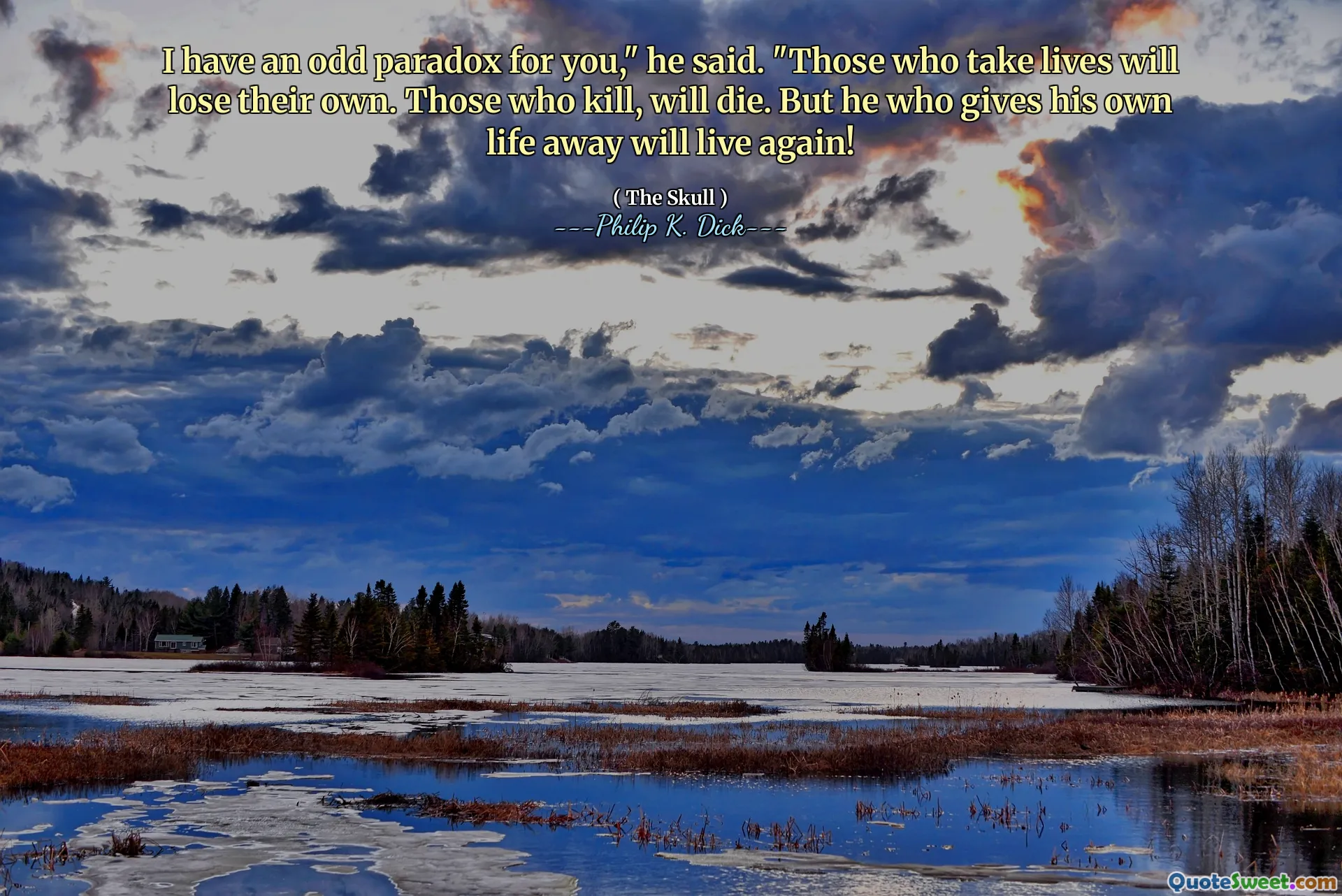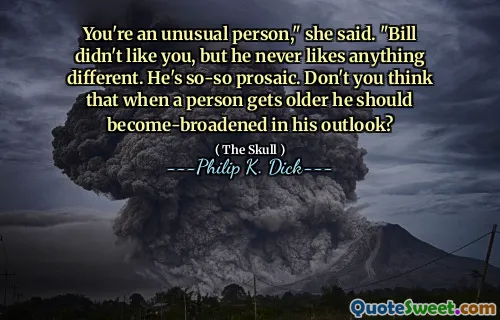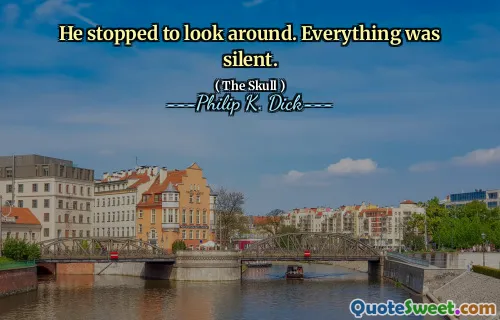
I have an odd paradox for you," he said. "Those who take lives will lose their own. Those who kill, will die. But he who gives his own life away will live again!
The quote presents a striking paradox about life and death. It suggests that those who take the lives of others will ultimately face their own demise, proposing a cycle of violence that leads to ruin. In contrast, the message emphasizes the nobility and significance of self-sacrifice, asserting that giving one's life for others leads to a form of immortality or rebirth.
This paradox invites readers to reflect on the deeper meanings of existence, suggesting that true life comes from selflessness rather than violence. The idea implies that individuals who choose to help others, even at the cost of their own lives, achieve a lasting legacy, ultimately transcending the physical limitations of life and death.









